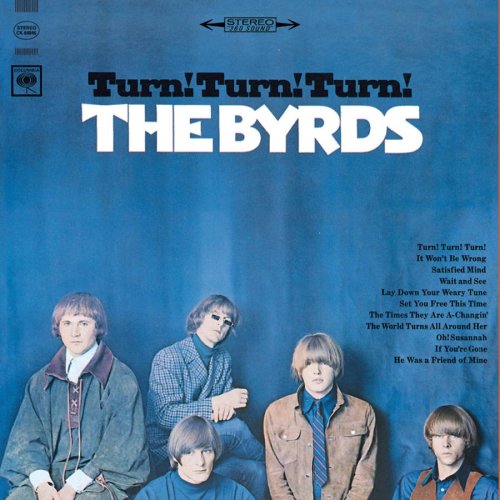Second verse, same as the first—to diminishing returns, but only slightly so. We still get revved-up Dylan covers (there’s no “please” in their command to get out of the new road in “The Times They Are A-Changin’”); splendid Gene Clark originals, all moody and brooding and yet possessed of lovely pop melodies; and scattered accoutrements that range from Porter Wagoner country hits to a few McGuinn stabs at pop-rock that aren’t half bad, the Herman’s Hermits to Clark’s Dylan-by-way-of-the-Beatles.
Nothing here is as game-changing as “Mr. Tambourine
Man”—what within the Byrds framework could ever be again?—but the album takes
on complicated (and problematic) weight as a last dying gasp of the American
Camelot myth. The title track’s plea for peace would sound more desperate than
prescient soon, and the expunged minstrel past of closing “Oh! Susannah” was a
national repressed that was already returning (I won’t even go on a diatribe
about Cold War bully John Kennedy, mourned in “He Was a Friend of Mine”; I’ll
just sub in a link to Stephen Rabe’s compelling book The Most Dangerous Area in the World: John F. Kennedy Confronts Communist Revolution in Latin America). Anyone who takes this thing as pure simple pop music either votes Republican or hasn't listened very closely.
For all that baggage, and despite inexplicably leaving a few
worthy Clark originals on the cutting room floor (“The Day Walk” is quite a
loss), the thing hangs together, tenuously and anxiously jangle-rocking on
the edge of oblivion. It already was
too late, but maybe that was the point.

